6 career defining records of Paul Clarvis
Film soundtrack drummer picks his finest
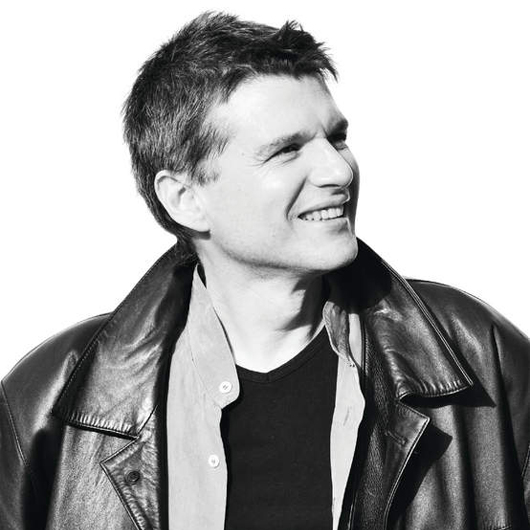
Paul Clarvis
“You turn up and do the best you can, finding the simplest way through it,” explains Paul Clarvis, talking to Rhythm Magazine about playing with bands, on critically-acclaimed film soundtracks and bringing his unique drumming style to six stand-out recordings from his extensive musical CV.
First up: “the search” for world influenced jazz
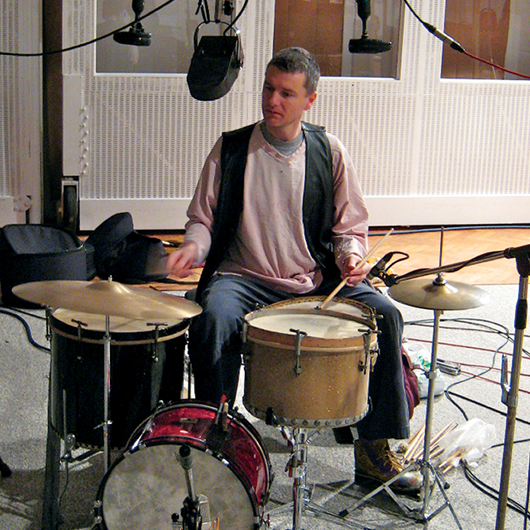
A Young Person's Guide (1996)
Orquestra Mahatma started life as a collaboration between Paul and guitarist/ violinist Stuart Hall in 1987, in an effort to create world influenced jazz here in the UK.
Paul Clarvis says:
“People always single this CD out when they come up at gigs. I suppose loosely we play world music, but in those days you couldn’t find it and you had to glean the information by going into record shops and buying 15 records, and maybe only one would be any good!”
“I can remember Stuart and I scratching our heads as to what time these Balkan things were in, whether they were in 13 or whether it was a very loose 12. And nobody knew anything about clave direction over here, we had to find out as much as we could for ourselves.”
“They were great times, and although information now’s so freely available, I feel that because we had to search it out for ourselves, it’s stayed with us, and it goes deeper when you’ve really had to search for it.”
-----------------------------------------------
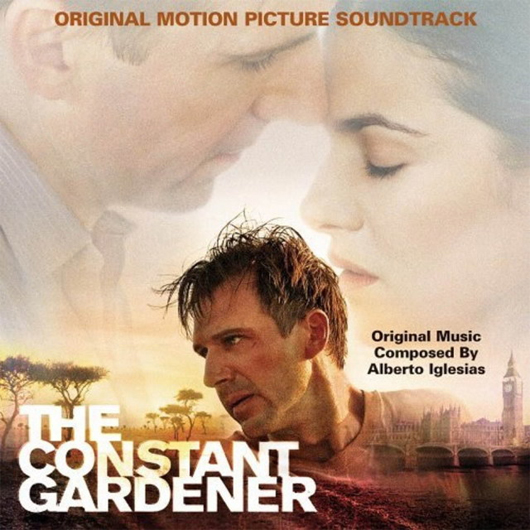
The Constant Gardener OST (2005)
Alberto Inglesias’s score for The Constant Gardener was nominated for an Oscar in 2006. African rhythms underpin much of the soundtrack to this film, set in Kenya.
Paul Clarvis says:
“The difficulty here was that it was scored parts for percussion, but I needed to make them feel African and to get the sounds right. I spent three days scratching my head, and that was the first time I’ve ever had to take a part home because it was too difficult to read. It was very particular, and I had to work out what drums to use and where to play open sounds on the drums to get them talking.”
“Alberto is a fantastic writer. Generally composers know a lot about harmony but don’t seem to have twigged how to get drums to sound African, so that they’re not playing in blocks, but rather in layers that are offset against each other.”
“Most of Western music begins and ends on one, and my job when I’m doing African things is to blur those edges to make the music skip along.”
-----------------------------------------------
Buy The Constant Gardener OST here: Amazon UK | Play.com | HMV
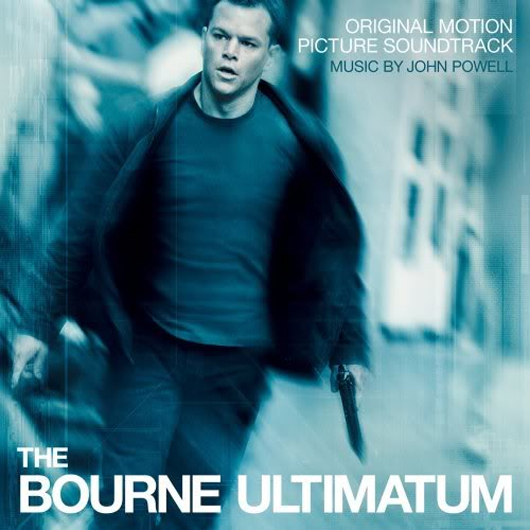
The Bourne Ultimatum OST (20007)
The third film in the Bourne trilogy, John Powell’s music perfectly matched the tension of the movie. Paul was asked by Louis Jardim to share percussive duties.
Paul Clarvis says:
“What John Powell wanted on this was top end, so we used roto toms. We had them tuned very loose so they were giving a lot of crack, and there was quite a lot of metal we used as well, various chair legs and some of the old Pete Engelhart gear.”
“It was tracking and playing very hard, too hard to be honest, and I had to get them to get me a set of gloves to play! I was physically exhausted, I’m not trying to be a drama queen, but I was hitting that hard, and playing quite tricky parts.”
“But this has become a bit of a blueprint on sessions now, lots of people say they want it to sound like the Bourne Ultimatum; I say ‘Aaaah, you’ll want the roto toms!’”
-----------------------------------------------
Buy The Bourne Ultimatum OST here: Amazon UK | Play.com | HMV
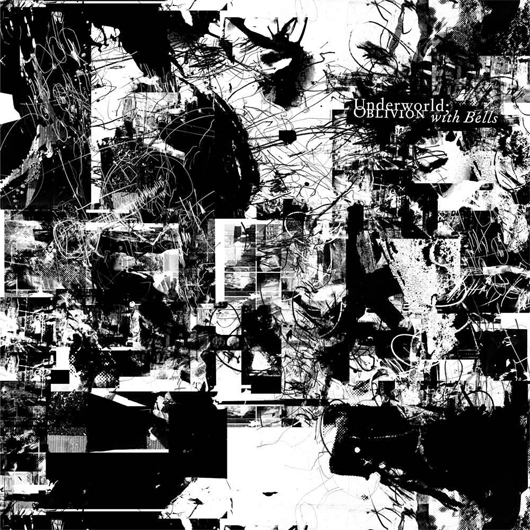
Oblivion With Bells (2007)
Renowned for their machine fuelled, deep throbbing, dark techno anthems, Underworld recruited Paul to bring his own inimitable sound to their last album.
Paul Clarvis says:
“That was two days with really great people and they write incredibly well-crafted pop songs. They were very open to anything I did, and it was really nice to be able to play along with machines.”
“After you leave a session producers often seem to dot the i’s and cross the t’s in different places from where you intended them to, or the balance of the sound is different. But Rick (Smith) sent me the record afterwards and he said ‘I put it up and I just left it how you played it.’”
“Nothing had been fiddled with, it just sounded like a percussionist playing along and they’d left it as I intended it to sound.”
-----------------------------------------------
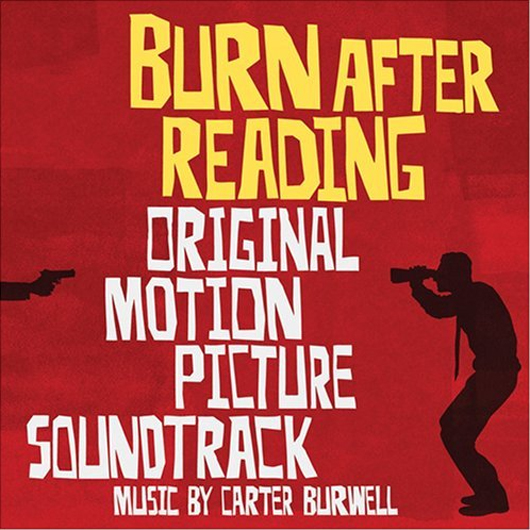
Burn After Reading OST
Burn After Reading was 2008’s offering from the Coen Brothers, whose use of music is integral to their ground-breaking and unconventional movies.
Paul Clarvis says:
“As far as I remember this was recorded in Abbey Road Studio 1, which is a great sounding room. Some of the drums we use are very dead, but they set off the sound of the room.”
“The Coen Brothers are very nice, very quiet, very shy blokes. But the whole film is ironic, so the drums were ironically loud. It was a drum sound that we started off when I did The Passion.”
“Things go in phases, but that was the start of people wanting these big, earth-moving drum sounds. A lot of it comes from doing a lot of quiet overdubs, and then a larruping one on top to get the energy. On this one I got in Frank Ricotti, Gary Kettel and Ralph Salmins, working as a team. We used a lot of orchestral bass drums as well as Taikos and other drums on top.”
-----------------------------------------------
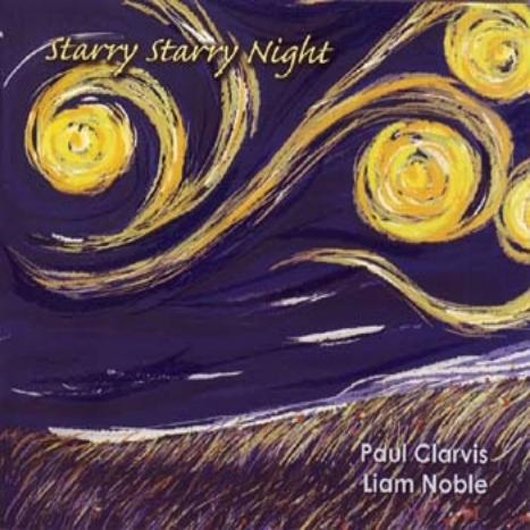
Starry Starry Night (2009)
Recorded in Abbey Road Studio 1, (almost a second home to Paul), Starry Starry Night is a covers album and the sound of two musicians totally in tune with each other and their own musicality.
Paul Clarvis says:
“This is the closest I’ve come to getting to what I think is the heart of the music. People go on about groove, but I don’t think ‘groove’ is the right word. It’s the ‘feeling,’ and you learn to play with feeling by getting right inside the music.”
“All I’ve ever tried to do is play four crotchets that sounded and felt good. And that album is the closest I’ve got to being half-way there, and I’m still working on it.”
“Everything seems to be about being complicated these days. I’m just trying to turn whatever I’ve been given into music. You turn up and do the best you can, finding the simplest way through. Clarity is what they’re looking for, that’s what I’ve learned anyway!”
-----------------------------------------------